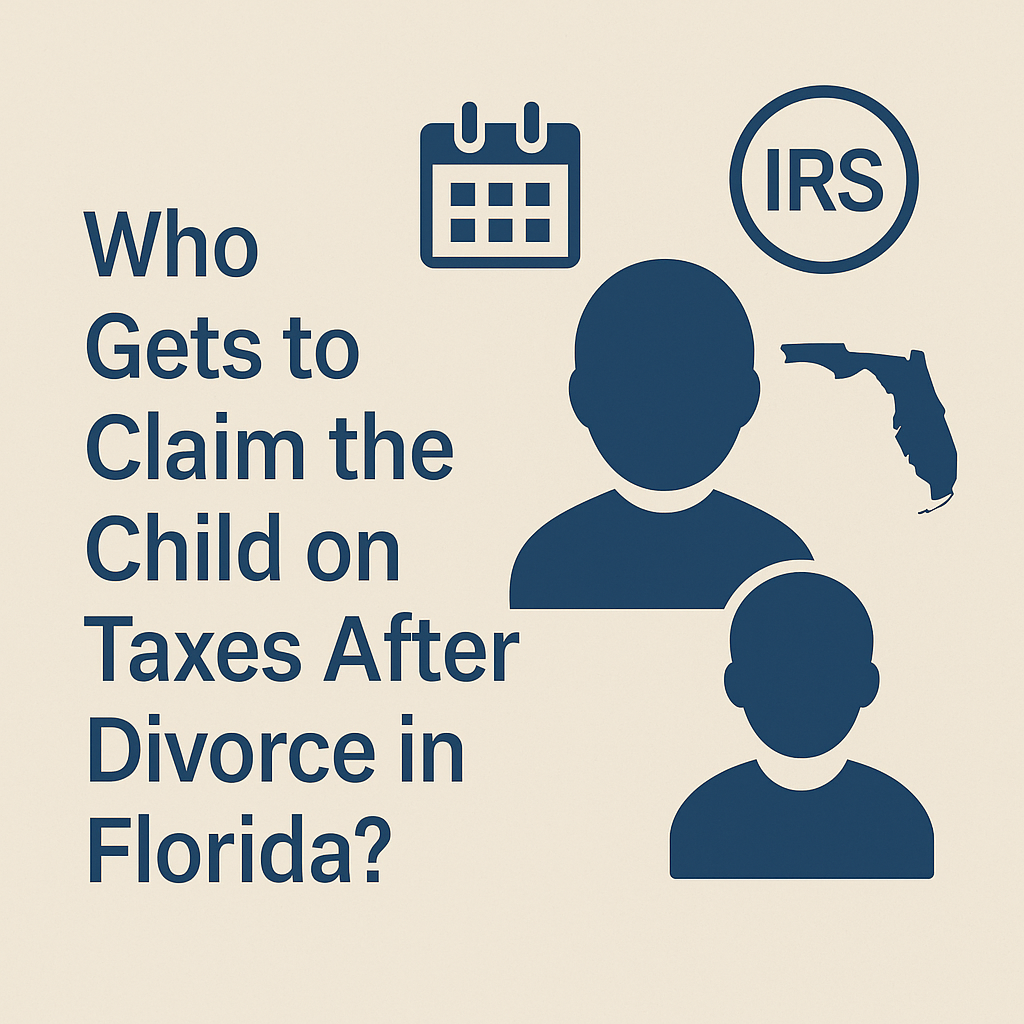
Divorce brings many financial changes, and one of the most common questions parents ask is: “Who gets to claim the child on taxes?” If you’re facing a Florida divorce child tax claim, the answer isn’t always simple. While Florida law controls custody and parenting plans, the IRS sets the rules for who can take the tax benefits. Knowing how these two systems overlap helps you avoid mistakes that could trigger an audit.
IRS Rules on Claiming a Child
The IRS generally allows the parent with primary custody—meaning the parent the child lives with for the majority of nights in the year—to claim the child as a dependent. This can affect eligibility for the Child Tax Credit, Earned Income Credit, and Head of Household filing status.
If custody is split evenly, the IRS looks at who provides more financial support and sometimes even uses adjusted gross income (AGI) to break ties.
Florida Parenting Plans and Tax Exemptions
In Florida, parenting plans can address which parent gets to claim the child on taxes. Courts sometimes alternate years between parents or allow both to claim if there are multiple children (e.g., each parent claims one child).
Importantly, the IRS only accepts this arrangement if the custodial parent signs IRS Form 8332 (Release of Claim to Exemption) giving the non-custodial parent the right to claim the child. Without this form, the IRS defaults to the custodial parent.
How Child Support and Taxes Connect
Many parents assume paying child support automatically gives them the right to claim the child on their taxes, but that’s not the case. The IRS rules are based on custody and time-sharing, not support payments.
That said, judges sometimes use tax exemptions as part of balancing child support obligations, so it’s important to discuss this with your attorney during divorce negotiations.
Practical Tips for Parents
- Put It in Writing: Make sure your parenting plan or marital settlement agreement clearly states who will claim the child each year.
- Use Form 8332: If you’re the custodial parent releasing the exemption, this IRS form is required.
- Communicate: Misunderstandings about tax exemptions can lead to both parents claiming the child—which triggers an IRS audit.
- Get Legal Advice: Because tax rules and divorce orders intersect, having legal guidance helps avoid conflict.
Final Thoughts
Taxes may not be the first thing you think about during a divorce, but they can make a real difference in your financial future. Knowing who gets to claim the child on taxes in Florida helps you plan ahead and avoid disputes.
If you have questions about divorce, custody, or tax-related parenting issues, Lipinski Family Law is here to help guide you through the process with clarity and confidence.



